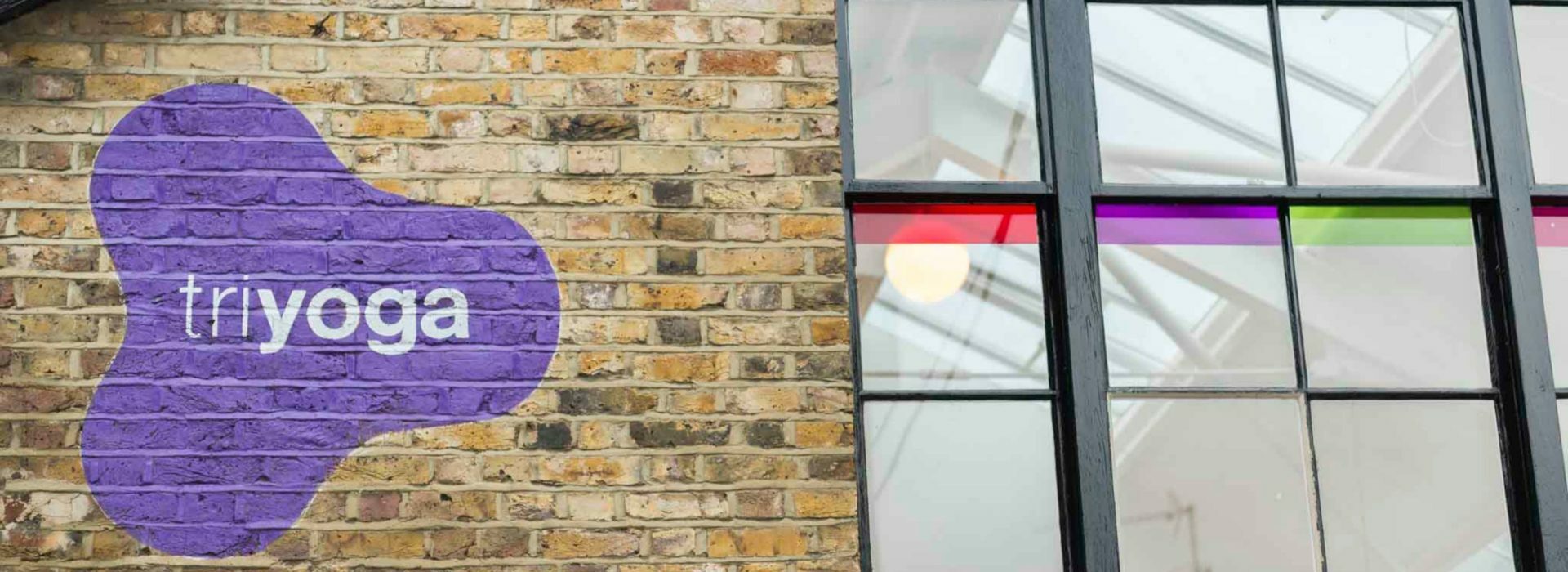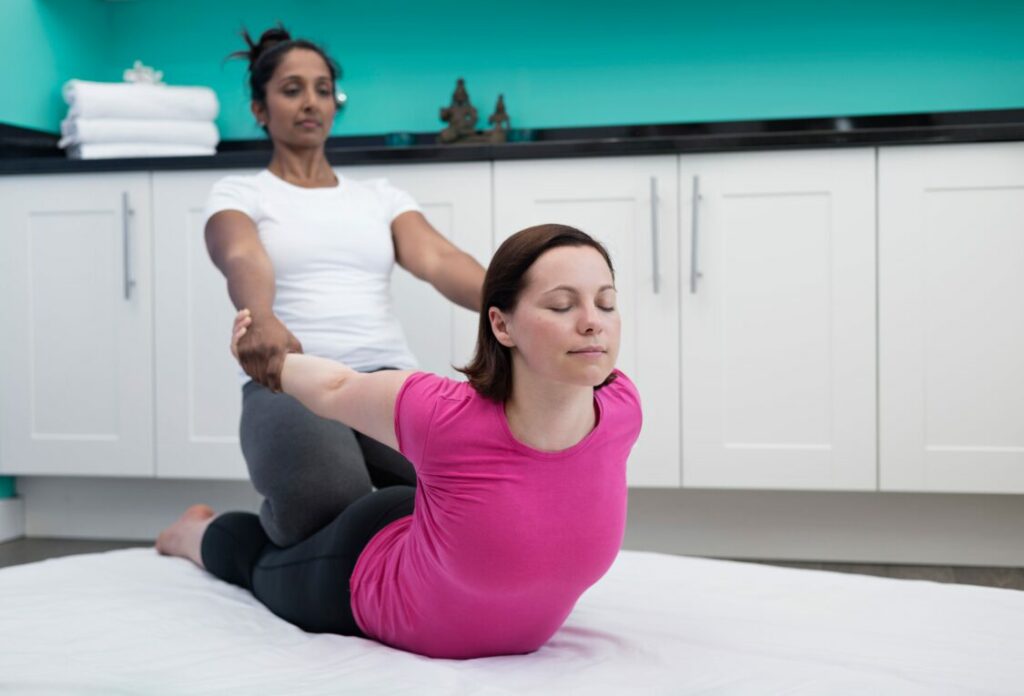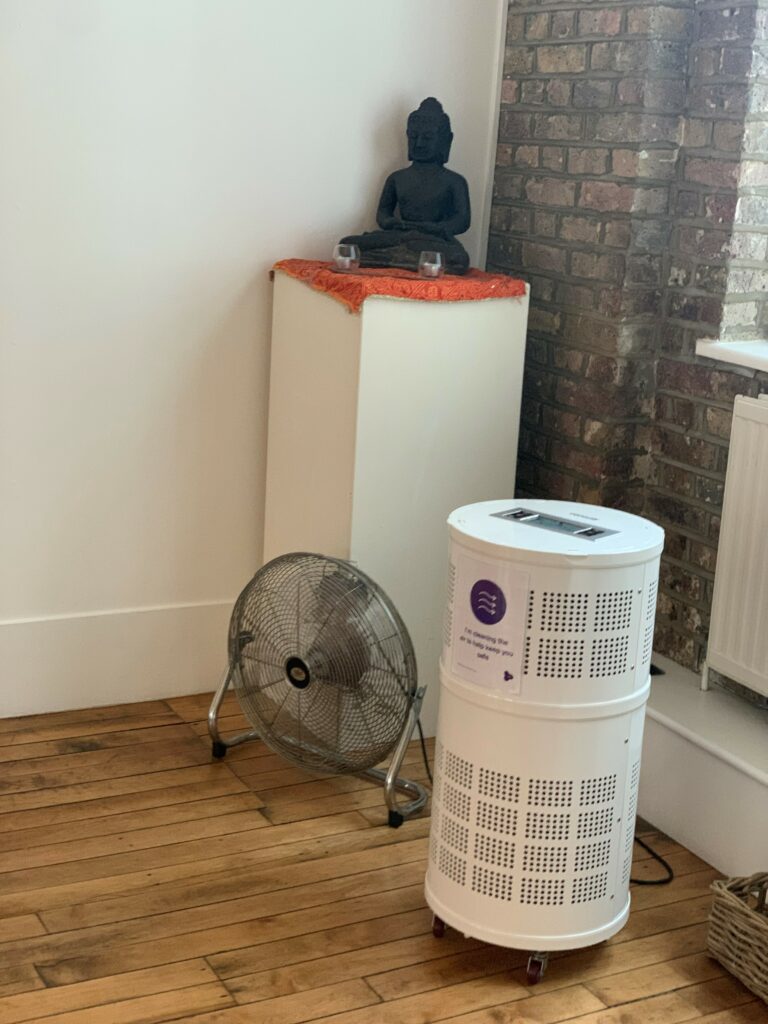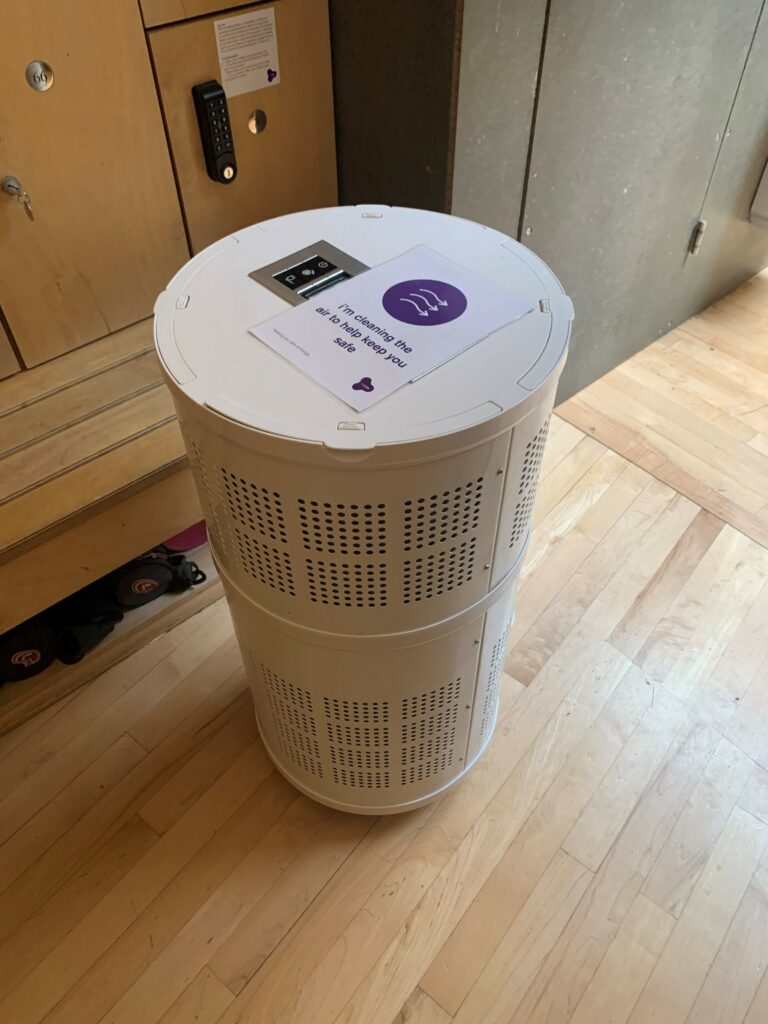triyoga has success with Rensair

February 2020 marked the 20th anniversary of triyoga, London’s leading destination for yoga, Pilates and treatments. triyoga was offering over 750 classes a week, international teacher workshops and a broad range of complementary treatments at their locations in Soho, Chelsea, Camden, Shoreditch, and Ealing.
At that time it was unclear about if and how COVID would affect life in England (if only we all knew) and there was advice like “wash your hands while singing Happy Birthday twice.”

When the situation escalated, triyoga was quick to respond. “We introduced safety protocols,” says triyoga founder Jonathan Sattin. They reduced the number of classes offered, increased their cleaning efforts, and took all props out of the classrooms. Capacity at the locations was reduced by 30-40%.
But conditions quickly deteriorated. “We closed all five locations 24 hours before the first lockdown,” says Sattin. Undeterred, triyoga made a quick pivot and was soon offering students 54 livestream and 108 online classes, as well as offering online workshops with international teachers who could no longer travel to London.
Throughout the difficulties of the various lockdowns, triyoga was cautious and followed the guidance of Public Health England and the World Health Organization as well as seeking advice from leading experts around the world to ensure that, when they reopened, any guidelines for health would be exceeded to keep people safe.

An airborne virus
In time it was established that coronavirus is airborne and spreads through respiratory droplets produced by infected individuals. At that point, triyoga started focusing on air quality and purification. Sattin says they serviced all their air handling systems and installed new filters. Windows, doors and skylights were kept open, weather permitting.
In a chance conversation, a student mentioned Rensair, the portable hospital-grade air purifiers developed for Scandinavian hospitals. “We researched it and it sounded impressive,” says Sattin. Testing by leading laboratories, including Eurofins, Norconsult and Oslo University Hospital has shown that Rensair’s patented technology, which uses H13 HEPA filters and UVC light, captures and kills 99.97% of airborne impurities such as viruses and bacteria, including coronavirus.
Looking at the scientific data, Rensair seemed to have the potential to solve their air purification needs. triyoga put Rensair to the test in some studios. “We went ahead because we wanted to make sure we were going above and beyond what was required to offer the best environment to our students, staff and teachers” says Sattin.

Let’s try it
The response was enthusiastic. “Everyone has commented on the Rensair units,” says Sattin. “What we are doing is unusual because not everyone is proactively purifying their indoor air.”
With people keen to get back to some form of life, as it once was, air purification safety measures can make a positive impact. Sattin tells the story of a restaurant near one triyoga location: “On our suggestion they purchased a unit and then posted they had Rensair air purification on social media. Their bookings immediately increased”.
Because the initial introduction of Rensair was so successful, triyoga decided to invest materially in further units for all of their locations, enhancing safety across every area of their buildings. In fact, they more than quadrupled the number so that all of the triyoga reception areas, studios and changing rooms have Rensair units running around the clock.
Embracing Rensair technology and communicating to the staff and students how this patented technology works to care for their health and safety has made a positive impact. “We are so very grateful,” says Sattin.
